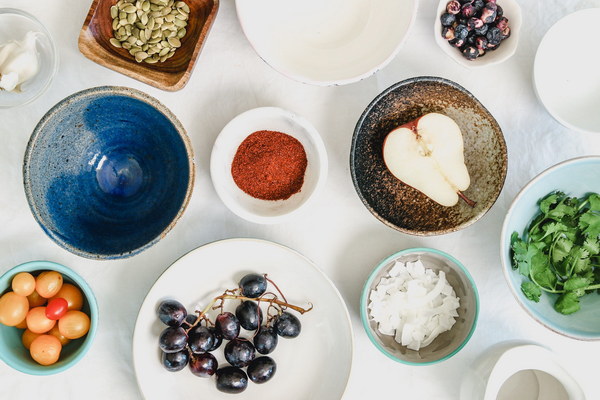Unleashing the Power of Traditional Chinese Herbs A Guide to Eliminating Dampness in the Intestines
In the realm of traditional Chinese medicine (TCM), the concept of dampness is a common underlying factor in many health issues. Dampness in the intestines, in particular, can lead to a variety of discomforts and imbalances in the body. This article aims to shed light on the role of certain Chinese herbs in addressing dampness within the intestines, offering insights into their properties and potential benefits.
Understanding Dampness in the Intestines
In TCM, dampness refers to a pathogenic condition that arises from an imbalance in the body's fluids. When dampness accumulates in the intestines, it can manifest as symptoms such as bloating, diarrhea, constipation, and a feeling of heaviness or discomfort in the abdominal area. This condition can be caused by a variety of factors, including diet, lifestyle, and external environmental influences.
Chinese Herbs for Eliminating Dampness in the Intestines
1. Atractylodes Macrocephala (Cang Zhu)
Atractylodes Macrocephala is a commonly used herb in TCM for treating dampness. It has the ability to drain dampness and strengthen the spleen, which plays a crucial role in the digestion and absorption of nutrients. Atractylodes Macrocephala can be found in various herbal formulas designed to alleviate dampness in the intestines.

2. Poria (Fu Ling)
Poria is another herb that is highly effective in draining dampness. It is often combined with other herbs to create a synergistic effect. Poria helps to absorb excess moisture in the intestines, thereby reducing bloating and improving digestion.
3. Cinnamon (Rou Gui)
Cinnamon is a spice that has been used in TCM for centuries. It possesses warming properties that can help to expel dampness from the body. In the context of dampness in the intestines, cinnamon can help to alleviate symptoms such as bloating, diarrhea, and abdominal pain.
4. Coptis Chinensis (Huang Lian)
Coptis Chinensis, also known as goldthread, is a powerful herb that can help to clear damp-heat in the intestines. It is often used in combination with other herbs to treat conditions characterized by dampness and heat, such as dysentery and irritable bowel syndrome (IBS).
5. Cassia Seed (Xiang Sha Ren)
Cassia Seed is a traditional Chinese herb that is often used in the treatment of dampness and diarrhea. It has astringent properties that can help to stop diarrhea and improve digestion. Cassia Seed can also be used to alleviate bloating and abdominal pain associated with dampness in the intestines.
Incorporating Chinese Herbs into Your Diet
When incorporating Chinese herbs into your diet, it is essential to consult with a qualified TCM practitioner to ensure that the herbs are appropriate for your specific condition. Here are a few tips for using these herbs:
- Atractylodes Macrocephala: Boil the herb in water and drink as a tea.
- Poria: Soak the herb in water overnight, then simmer and drink as a decoction.
- Cinnamon: Add ground cinnamon to your food or drink, or use it in a tea.
- Coptis Chinensis: Combine with other herbs and prepare as a decoction.
- Cassia Seed: Roast the seeds and grind them into a powder. Add the powder to your food or drink.
Conclusion
The use of Chinese herbs to eliminate dampness in the intestines has been a staple in traditional Chinese medicine for centuries. By understanding the properties and benefits of these herbs, individuals can take proactive steps to improve their digestive health and overall well-being. Always consult with a qualified TCM practitioner before starting any herbal treatment to ensure that it is safe and appropriate for your specific needs.









